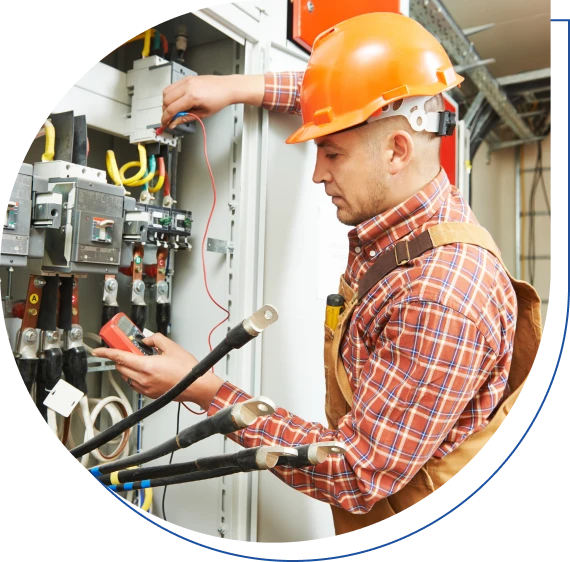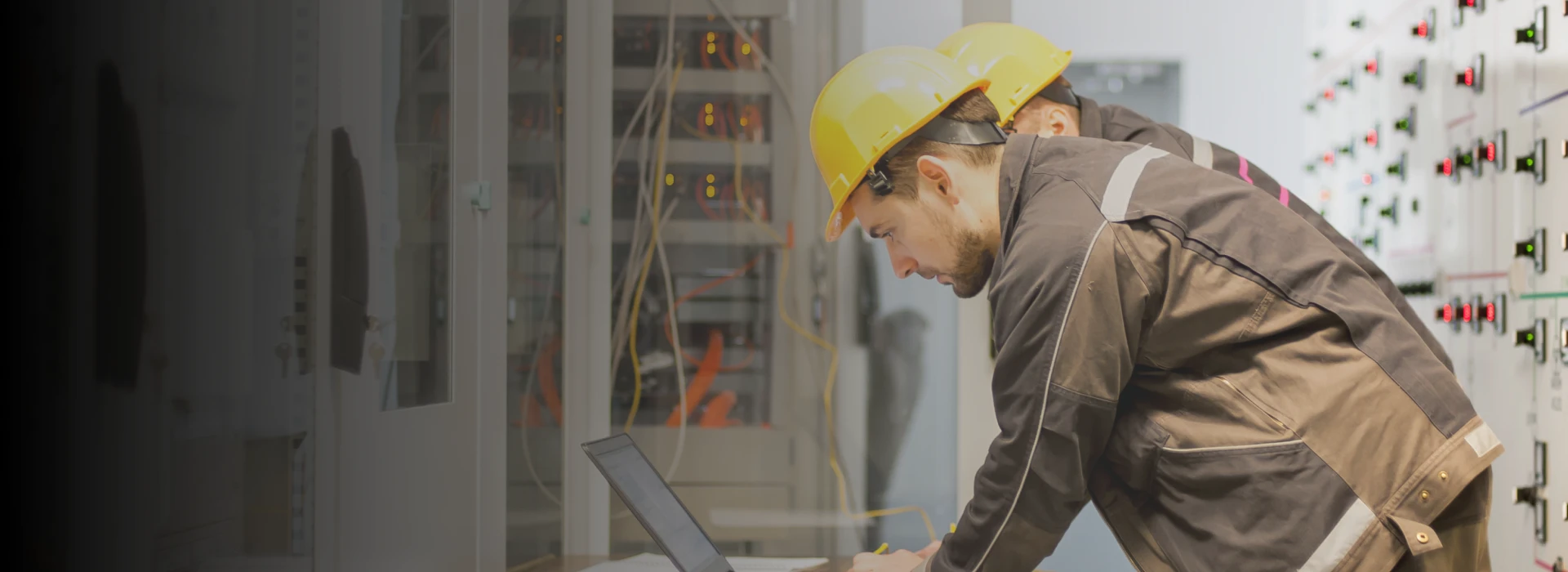Contact us today for a comprehensive inspection that guarantees your safety and identifies potential issues before they become costly problems. Our professional electrical inspection service is your key to peace of mind. Safeguard your home or business now!
Unlock Solutions Tailored Just for You >>
Ensure Safety with Comprehensive Inspection Services
Ensure the efficiency and reliability of your electrical systems with our electrical inspections. Our certified technicians conduct thorough assessments to identify potential issues, providing peace of mind.
Why Residential Electrical Inspection Is Critical for Home Safety
Residential electrical inspection is a crucial process designed to ensure that all electrical components within a home are operating safely and efficiently. Whether you're a homeowner, property manager, or real estate investor, routine inspections can protect against risks like fire hazards, electrocution, and equipment failure. A well-executed residential electrical inspection evaluates wiring systems, circuit breakers, switches, grounding, and other critical components to ensure compliance with current electrical codes.
When an inspector visits your home, they assess the integrity of the system from the service entrance to each individual outlet. They also check for outdated wiring systems such as knob-and-tube or aluminum wiring that may no longer meet modern safety standards. Inspectors verify that all components are grounded correctly, circuit breakers are functioning as intended, and that GFCI and AFCI protection is in place where required.

What to Expect During a Residential Electrical Inspection
During a residential electrical inspection, licensed professionals will typically:
Regular inspections not only ensure compliance but also increase the longevity of your home's electrical infrastructure, reduce repair costs, and boost overall property value.
When to Schedule a Residential Electrical Inspection
You should schedule a residential electrical inspection:
Ready to ensure your home is safe? Contact our team for a residential electrical inspection today and enjoy peace of mind.

Commercial Electrical Inspection for Business Continuity and Safety
Commercial electrical inspection services play a vital role in keeping business operations running smoothly while maintaining a safe environment for employees and customers. These inspections go beyond basic checks and are tailored to the complex and high-capacity systems found in commercial buildings.
Commercial facilities typically feature intricate wiring systems, multiple electrical panels, transformers, and high-demand equipment. An inspection evaluates the entire infrastructure to prevent electrical faults that can lead to costly downtime, code violations, or safety hazards.
Key Components Checked During a Commercial Electrical Inspection
During a commercial electrical inspection, professionals assess:
Benefits of Commercial Electrical Inspection
Maintain uninterrupted business operations—book your commercial electrical inspection today with our certified team.
Common Problems Identified in Residential and Commercial Electrical Inspections
Electrical inspections often uncover issues that may not be obvious but can pose significant safety or operational risks. These concerns can affect both residential and commercial properties.
Outdated or Unsafe Wiring
Many older homes and buildings still have outdated wiring systems, such as aluminum wiring, which increases the risk of electrical fires. In commercial spaces, this may include substandard wiring methods used during expansions or equipment upgrades.
Overloaded Circuits and Panels
Exceeding the electrical load limit in any building can result in overheating and potential fire hazards. An inspection helps determine if you need to upgrade your service panel or install additional circuits.
Improper Grounding and Bonding
Incorrect grounding can lead to serious safety concerns, especially in commercial facilities with sensitive equipment. This is one of the most common violations noted during inspections.
Code Violations
Homes and businesses often fall out of code due to aging infrastructure or DIY electrical work. Inspectors will identify non-compliance with the NEC and recommend necessary updates.
Avoid costly repairs and safety risks—schedule a residential or commercial electrical inspection to identify issues before they become emergencies.
The Role of Licensed Professionals in Electrical Inspections
Whether it’s a residential electrical inspection or a commercial electrical inspection, the skill and experience of a licensed inspector make a significant difference in the outcome. These professionals are trained to evaluate both visible and hidden components of an electrical system using specialized tools and knowledge.
What Sets Professional Inspectors Apart
The Value of Hiring Certified Electrical Inspectors
Certified inspectors ensure that your building not only meets but often exceeds minimum safety requirements. They also provide detailed documentation that can be essential during property sales, lease renewals, or insurance claims.
Ensure your inspection is thorough and compliant—contact our licensed experts for your next electrical inspection.

How Often Should You Schedule an Electrical Inspection?
Maintaining a consistent inspection schedule is key to preserving the integrity of your electrical system. Frequency may vary based on the property type, age, and usage.
Residential Electrical Inspection Timelines
Commercial Electrical Inspection Recommendations
Don’t wait for a problem to arise—stay ahead with regular residential and commercial electrical inspections.
Technology Used in Modern Electrical Inspections
Advancements in technology have significantly improved the efficiency and accuracy of inspections in both residential and commercial settings.
Infrared Thermography
This technique helps detect heat anomalies in panels, wires, or breakers that may not be visible to the naked eye.
Digital Reporting and Compliance Tracking
Inspectors now offer digital inspection reports that include photos, compliance notes, and repair recommendations, streamlining the process for both contractors and property owners.
Drones and Robotics
In large commercial properties, drones assist in inspecting rooftop units and inaccessible areas safely.
Leverage modern technology for precise inspections—ask us how we use advanced tools for our commercial and residential electrical inspections.
The Long-Term Value of Electrical Inspections
Residential electrical inspections and commercial electrical inspections not only ensure immediate safety but also offer long-term value. Proactive maintenance can prevent system failure, reduce insurance premiums, and extend the life of your electrical infrastructure.
Boosting Property Value
Homes and commercial spaces with documented inspections often sell faster and at higher prices because buyers feel more secure about their investment.
Reducing Operational Costs
Inspections help identify inefficient components, allowing you to make energy-saving upgrades that reduce electricity bills.
Add long-term value to your property—contact us for scheduled electrical inspections that work for your timeline and budget.
FAQs
- What is a Residential Electrical Inspection and why is it important?
- How often should I schedule a Commercial Electrical Inspection?
- What are the most common issues found during a Residential Electrical Inspection?
- Who performs Residential and Commercial Electrical Inspections?
- Can I do an Electrical Inspection myself?
PTX Electric provides electrical inspection services across Burnaby, Coquitlam, New Westminster, and Port Moody.


